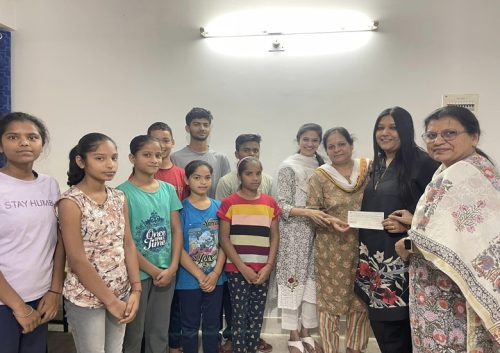Engaging Parents in Their Children’s Educational Journey: Workshops and Community Events
 At Pestalozzi Children’s Education Society, we understand that the involvement of parents in their children's education is crucial for fostering academic success and holistic development. Our approach emphasizes building strong partnerships with parents through a variety of workshops and community events. These initiatives not only support students' learning but also empower parents to play an active role in their children's educational journey.
At Pestalozzi Children’s Education Society, we understand that the involvement of parents in their children's education is crucial for fostering academic success and holistic development. Our approach emphasizes building strong partnerships with parents through a variety of workshops and community events. These initiatives not only support students' learning but also empower parents to play an active role in their children's educational journey.
**Importance of Parental Involvement**
Research consistently shows that parental involvement is one of the most significant factors influencing a child's academic performance and overall well-being. When parents are engaged, children are more likely to excel academically, develop positive attitudes towards learning, and exhibit better social and emotional skills. At Pestalozzi, we believe that education is a collaborative effort that extends beyond the classroom, and we strive to create opportunities for parents to be integral participants in this process.
**Workshops for Parents**
We offer a range of workshops designed to equip parents with the knowledge and skills needed to support their children’s education effectively. These workshops cover various topics, including:
1. **Educational Strategies:** Parents learn practical strategies to assist with homework, foster effective study habits, and encourage a love for reading. These sessions help parents understand the curriculum and provide tools to support their children’s learning at home.
2. **Parenting Skills:** Workshops on positive parenting techniques, communication skills, and conflict resolution are provided to help parents create a nurturing and supportive home environment. These sessions emphasize the importance of emotional support and consistent discipline in children's development.
3. **Health and Nutrition:** Recognizing the connection between health and academic performance, we offer workshops on nutrition, physical fitness, and mental health. Parents learn about the importance of a balanced diet, regular exercise, and mental well-being in their children’s overall development.
4. **Career Guidance:** We also provide guidance on future career opportunities and educational pathways, helping parents support their children’s aspirations and long-term goals. These sessions include information on scholarships, vocational training, and higher education options.
**Community Events**
Community events are another key component of our parental engagement strategy. These events bring together families, educators, and community members to celebrate achievements, share experiences, and build a strong support network. Some of our popular community events include:
1. **Family Days:** These events provide a platform for families to engage in fun and educational activities together. From sports days to cultural festivals, family days foster a sense of community and strengthen the bond between parents and children.
2. **Parent-Teacher Meetings:** Regular parent-teacher meetings allow for open communication between parents and educators. These meetings provide an opportunity to discuss students’ progress, address any concerns, and set collaborative goals for improvement.
3. **Educational Fairs:** We organize fairs that showcase students’ projects, talents, and achievements. These events highlight the importance of parental support and involvement in students’ successes.
4. **Community Service Projects:** Involving parents in community service projects alongside their children promotes a sense of civic responsibility and teamwork. These projects help families connect with their communities and contribute positively to society.
**Empowering Parents as Partners**
Our goal is to empower parents to become active partners in their children's education. By providing them with the resources, knowledge, and opportunities to engage, we create a collaborative environment where children can thrive. Parental involvement not only enhances academic outcomes but also strengthens family relationships and builds a supportive community around each child.



